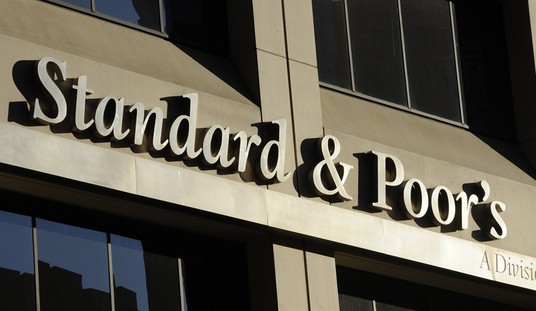“The heat is rising” ahead of the upcoming G7 summit between China and the US. Answering Donald Trump’s last round of tariffs. Beijing’s Finance Ministry announced that they would impose new tariffs on $75 billion of US imports. Some of those will hit almost immediately, and then some will escalate on December 15th, the same day that the other half of Trump’s announced tariffs will hit consumer goods:
The US-China trade war ratcheted up yet again on Friday, with Beijing unveiling a new round of retaliatory tariffs on about $75 billion worth of US goods.
China will place tariffs of 5% or 10% on US imports starting on September 1st, according to a statement posted by China’s Finance Ministry on Friday.
The Ministry also announced plans to resume tariffs on US imports of automobiles and automobile parts. The tariffs would be 25% or 5%, and would take effect on December 15th.
It’s the kind of tit-for-tat action that takes place in trade wars. Bloomberg’s Shawn Donovan calls it a “measured response” to Trump’s tariffs, but that might be all China has left — at least in tariffs:
China has a disadvantage in a trade war with the US, as it exports far more than it imports. Furthermore, they need to be able to conduct industrial espionage on US companies operating in China and exporting their manufactured goods to the US in order to glean trade secrets and gain a competitive edge for their own companies. Both issues are driving Trump’s strategy on the trade war, but they give him an advantage in that China’s losses are much more significant in both economic and strategic terms.
That doesn’t make it cost-free for Trump, however. Bond yields are already signaling a potential recession on the horizon driven largely by the economic damage from the trade war. Freight shipping has declined for eight straight months in the latest indication of a coming contraction:
Economists and executives alike are trying to assess the impact of tariffs and the overall health of the economy, amid mixed signals such as steady consumer spending, weak manufacturing data and volatile stock and bond markets. J.P. Morgan wrote in a note this week that the average American household will lose $1,000 a year because of new tariffs. …
In July, the Cass Freight Index, which measures North American rail and truck volumes, fell 0.8% from June, marking its eighth month of declines, and a drop of nearly 6% from a year ago.
“With the -5.9% drop in July, following the -5.3% drop in June, and the -6.0% drop in May, we repeat our message from last two months: the shipments index has gone from “warning of a potential slowdown” to “signaling an economic contraction,” strategist Donald Broughton wrote in the report for Cass Information Systems, a freight payments processor.
As the trade dispute continues, it’s “forcing companies to run down inventory, curbing new orders,” Jefferies wrote in a note Wednesday. “This is corroborated by weak export growth from Asia during the peak shipping season. The good news is that the run down in the backlog of orders and import intentions appears to be close to a nadir.”
Trump has good reasons for playing hardball with China, but he’s going to have to make a decision soon whether he can afford it for much longer. A recession will kill his main argument for re-election, and it would likely produce a stronger Joe Biden in the Democratic primaries, as I wrote last week:
A recession in 2020 would be a body blow to Trump’s campaign. A recession in 2019, or perhaps just the perception of its inevitability, might influence the Democratic primaries more than even Warren could predict. For insight, we can look back to 1992’s Democratic primary and how Carville’s axiom played out.
The Democratic field in 1991-2 was nowhere near as large as in this cycle, but it had a surprisingly similar progressive bent. Early in 1991, fresh off his Gulf War victory and with approval ratings of 89 percent at one point, Bush seemed unbeatable, which discouraged more well-known potential candidates such as Mario Cuomo and Jesse Jackson from throwing their hats into the ring. Instead, Clinton and his successful Southern centrism squared off against only one other governor, California’s Jerry Brown, at the time a favorite of left-leaning progressives. The three other major candidates in the race all came out of the U.S. Senate: Massachusetts’ Paul Tsongas, Nebraska’s Bob Kerrey, and Iowa’s Tom Harkin, all of whom came from the party’s more liberal and/or populist wing.
And yet, in the midst of a recession, the race took a surprisingly centrist tone. After recovering from the exposure of an extramarital affair, Clinton kept his focus on economic growth through traditional methods. This strategy turned out to be so successful that Brown tried changing tactics late in the primaries, swinging right to back a flat tax and abolishing the Department of Education, long a goal of Ronald Reagan conservatives. In the end, however, Democrats went with Clinton and his laser focus on the economy, a centrist who promised less of an economic revolution in the midst of uncertainty in the short recession.
If that same dynamic holds in 2020, it won’t benefit Warren even if she wins the recession-prediction sweepstakes. Voters will want stability and caution rather than radical shifts in policy, perhaps especially after the drama and unpredictability of Trump’s White House tenure. Almost the entire Democratic field has run hard to the left in order to out-Bernie Bernie Sanders; of the viable candidates remaining, only Joe Biden fits the mold. Biden also represents a restoration of the Barack Obama order, which is already attractive enough that Biden’s opponents have been forced into the role of attacking Obama to fight Biden for the nomination.
Trump has far more economic leverage on China, but Beijing might have more political leverage on Trump. At some point, they might be able to offer him just enough to declare victory and depart the field. If Trump is as self-serving as his critics claim, he might have already done so. If he does cut a deal, Trump had better make sure he gets enough concessions to make the pain worth it.








Join the conversation as a VIP Member